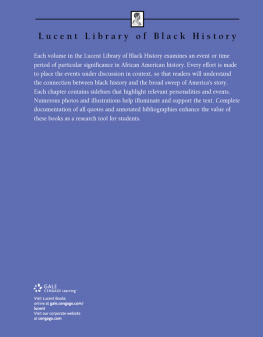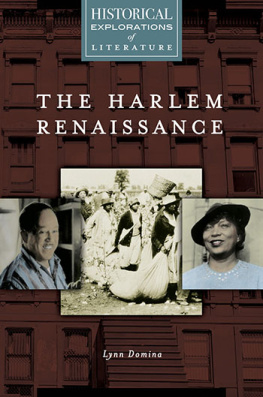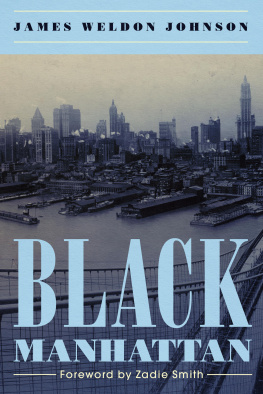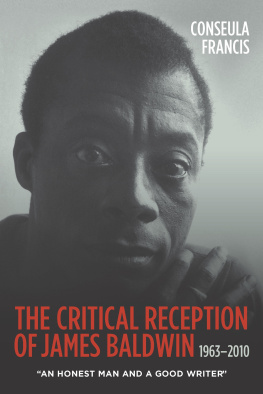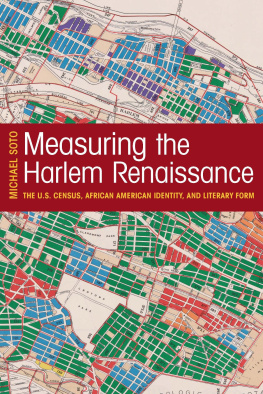New Perspectives on James Weldon Johnsons The Autobiography of an Ex-Colored Man
New Perspectives on James Weldon Johnsons The Autobiography of an Ex-Colored Man
EDITED BY Noelle Morrissette
A Sarah Mills Hodge Fund Publication
This publication is made possible in part through a grant from the Hodge Foundation in memory of its founder, Sarah Mills Hodge, who devoted her life to the relief and education of African Americans in Savannah, Georgia.
2017 by the University of Georgia Press
Athens, Georgia 30602
www.ugapress.org
All rights reserved
Set in 10/13 Kepler by Graphic Composition, Inc., Bogart, Georgia.
Most University of Georgia Press titles are available from popular e-book vendors.
Printed digitally
Library of Congress Cataloging-in-Publication Data
Names: Morrissette, Noelle editor.
Title: New perspectives on James Weldon Johnsons The autobiography of an ex-colored man / edited by Noelle Morrissette.
Description: Athens : The University of Georgia Press, 2017. | Includes bibliographical references and index.
Identifiers: LCCN 2016049000| ISBN 9780820350974 (hard bound : alk. paper) | ISBN 9780820350967 (e-book)
Subjects: LCSH: Johnson, James Weldon, 18711938. Autobiography of an ex-colored man. | African American men in literature. | Race in literature.
Classification: LCC PS3519.02625 a9535 2017 | DDC 818/.5209dc23 LC record available at https://lccn.loc.gov/2016049000
To Robert and Michele, Frank and Nancy, ancestors and family
CONTENTS
INTRODUCTION Biography of an Author, Biography of a Text: James Weldon Johnsons Ultimate American Work
NOELLE MORRISSETTE
Stepping across the Confines of Language and Race: Brander Matthews, James Weldon Johnson, and Racial Cosmopolitanism
LAWRENCE J. OLIVER
How The Autobiography of an Ex-Colored Man Became an Unlikely Literary Classic
MICHAEL NOWLIN
Authenticity and Transparency in The Autobiography of an Ex-Colored Man
JEFF KAREM
The Futurity of Miscegenation: James Weldon Johnsons The Autobiography of an Ex-Colored Man and Pauline Hopkinss Of One Blood
DIANA PAULIN
Blackness Written, Erased, Rewritten: James Weldon Johnson, Teju Cole, and the Palimpsest of Modernity
DAPHNE LAMOTHE
Dead Ambitions and Repeated Interruptions: Economies of Race and Temporality in The Autobiography of an Ex-Coloured Man
BRUCE BARNHART
The Autobiography as Ars Poetica: Satire and Rhythmic Exegesis in Saint Peter Relates an Incident
BEN GLASER
The Composer versus the Perfessor: Writing Race and (Rag)Time
LORI BROOKS
James Weldon Johnsons The Autobiography of an Ex-Colored Man, Archived and Live
NOELLE MORRISSETTE
W. E. B. Du Bois, Barack Obama, and the Search for Race: School House Blues
ROBERT B. STEPTO
AFTERWORD The Ex-Colored Man for a New Century
NOELLE MORRISSETTE AND AMRITJIT SINGH
ACKNOWLEDGMENTS
I am thankful to the contributors to this collection who, through their distinct lines of critical inquiry, have taught me new things about James Weldon Johnson, his writing, and our shared endeavors as scholars, authors, and educators. Our work in this volume rests on the rigorous and lasting scholarship of too many authors to name. All of our efforts are indicative of a collaboration that honors Johnsons scholarly and creative legacy and his deep regard for African American culture. Together we acknowledge the black and unknown bards and the placement of African American literature in America and the world.
Several colleagues, particularly Robert Stepto and Louise Bernard, encouraged me to bring together this collection. Roberts critical legacy has inspired and guided my work; his friendship has sustained me. Louise helped shape the critical vision of this collection and has offered her support at every stage. Keen critical feedback from my colleagues at the University of North Carolina at Greensboro helped me see the way through this endeavor. Karen Kilcup, friend and mentor, guided me as I assumed the challenging role of editor, patiently providing advice about the numerous and nuanced editorial decisions involved in a collaborative critical anthology. Mara Carla Snchez, Karen Weyler, Ana Hontanilla, Hepzibah Roskelly, and Mary Ellis Gibson provided perceptive criticism and a supportive audience. I have presented portions of this work at the American Literature Association, on a panel addressing practices of African American biography with Emily Bernard, Carla Kaplan, and Louise Bernard; and at a symposium at Yale University honoring Steptos teaching and scholarship.
Support from the Marc C. Friedlaender Faculty Excellence Award from the Department of English at the University of North Carolina at Greensboro helped me complete this book. Special thanks go to Sue Williams for her support of this project.
A work such as this is the product of the labors of many. I would like to thank the University of Georgia Press, particularly Walter Biggins, who embraced this project from the start. Jon Davies, assistant director for EDP at the press, and Merryl A. Sloane, our copyeditor, provided keen editorial insight to bring this book into its best, most readable form. Any errors that remain are entirely my own.
I gratefully acknowledge the University of Minnesota Press for permission to publish a modified version of Diana Paulins The Futurity of Miscegenation, from her monograph Imperfect Unions, and Harvard University Press for permission to publish Robert Steptos W. E. B. Du Bois, Barack Obama, and the Search for Race: School House Blues, the second of his W. E. B. Du Bois lectures from A Home Elsewhere: Reading African American Classics in the Age of Obama (Cambridge, Mass.: Harvard University Press), Copyright 2010 by the President and Fellows of Harvard College. I also acknowledge the University of Iowa Press, which published my James Weldon Johnsons Modern Sound-scapes (2013). The James Weldon Johnson and Grace Nail Johnson Papers in Yale Universitys Collection of American Literature at the Beinecke Rare Book and Manuscript Library are cited frequently in this book. I thank the Beinecke staff and Nancy Kuhl, the curator of the collection.
In memoriam: Joseph T. Skerrett Jr. (19432015)
New Perspectives on James Weldon Johnsons
The Autobiography of an Ex-Colored ManINTRODUCTION
Biography of an Author, Biography of a Text
James Weldon Johnsons Ultimate American Work
NOELLE MORRISSETTE
It seems probable that, instead of developing them independently to the utmost, the Negro will fuse his qualities with those of the other groups in the making of the ultimate American people; and that he will add a tint to Americas complexion and put a perceptible permanent wave in Americas hair.
James Weldon Johnson, Along This Way
When James Weldon Johnson wrote these words, he possessed not only the hindsight of sixty-two years in America but a carefully considered knowledge of centuries of New World blacks. His knowledge was familial and represented an expansive geography, based on his mothers Bahamian and Haitian heritage and his fathers experiences as a free black man in Virginia who worked at hotels for wintering vacationers in Florida and had family in New York City. Johnsons knowledge was personal, based on his experiences with Jim Crow and with the geographic, linguistic, and visual diversity of New World black cultures: Cuban itinerant workers in Jacksonville and boyhood friendships with other young black men, including a Cuban exchange student (Ricardo Rodriguez) and the impetuous Judson Douglas Wetmore, who was light enough to pass. Johnsons knowledge also was scholarly and multilingual: he had finished his detailed historical and sociological account of black New York, which broadly extended to world citizenship rights for African Americans, in


